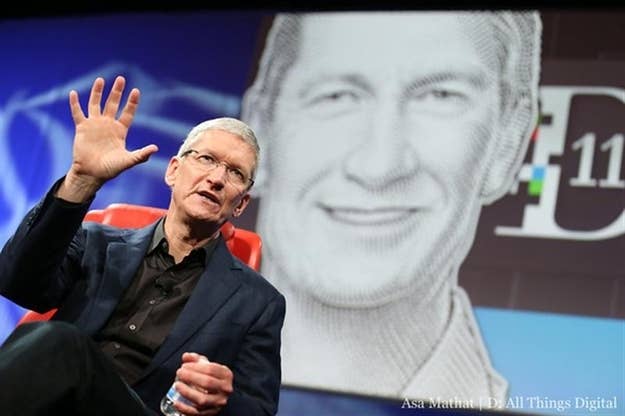
The iPhone is traditionally thought of as a nearly completely closed ecosystem where the user experience is tightly controlled by Apple. But that could very well be changing, based on comments made by CEO Tim Cook during the D11 conference sponsored by AllThingsD last night.
Such a change would represent a dramatic shift in Apple's tenor: from a previously infallible stance requiring developers to come to Apple on its terms, to apologizing for recent app failures and possibly allowing developers to tinker with the iPhone's core experiencing.
"On the general topic of opening up APIs, you'll see us open up more in the future, but not to the degree that we put the customer at risk of having a bad experience," Cook said during the conference's keynote address last night. "There's always a fine line to walk there, but maybe not so fine in some cases. We think the customer pays us to make certain choices on their behalf. I've seen some settings on these phones... I don't think that's what most customers want. Do some want it, yes, of course. Is that a mainstream customer want, I don't think so. But, will we open up more: yes."
Cook's comments mark a departure from the way the iPhone ecosystem is currently configured, whereby the core features and user experience remain largely untouched by third-party developers and tightly controlled by Apple. Apple's logic for this is that tinkering too much would impact the customer experience on the phone.
By contrast, Android, Google's mobile operating system, is about the exact opposite. Developers on Android can dig into the guts of the operating system and change almost anything on the phone, from the keyboard to a complete overhaul like Facebook's Home app.
That is quickly becoming a point of differentiation between Android and the iPhone — for example, Samsung's flagship Android phone, the Galaxy S 4, utilizes a predictive keyboard powered by a company called SwiftKey. Apple is still one of the top sellers of smartphones in the industry (the argument of profit share over market share is thrown around a lot in this case), but it is hard to deny the steady growth of Android. Samsung sold 10 million Galaxy S 4 smartphones in its first month on sale, a kind of frantic pace typically reserved for the iPhone.
But while Apple may be opening up to developers more, this is still Apple, so expect any change to be slow and methodical. While Android lets Facebook essentially take over the operating system, Apple has only allowed a tightly controlled level of impact on its core user experience — the same it's done with Twitter. The integration has more or less happened on Apple's terms.
Still, this is a marked change from Apple's typical invincible tenor and status. Even when talking about Apple Maps, Apple's version of a mapping app on the iPhone, Cook reiterated, "we screwed up there."
